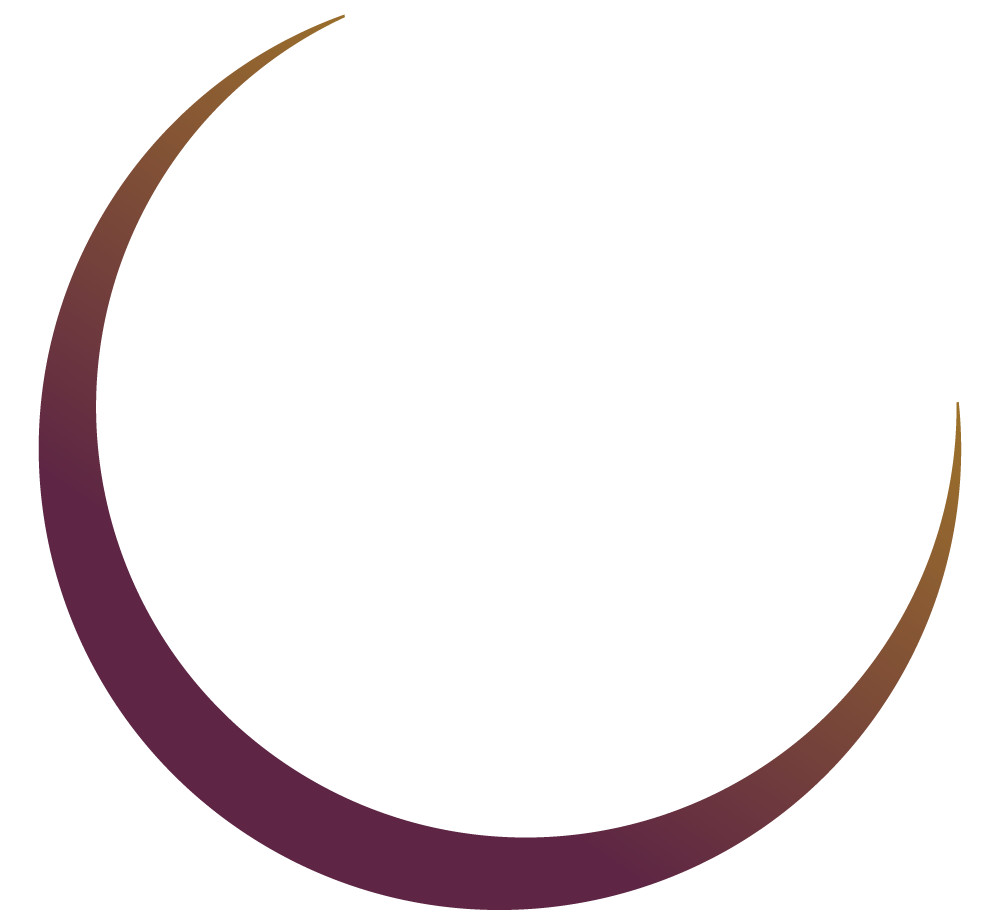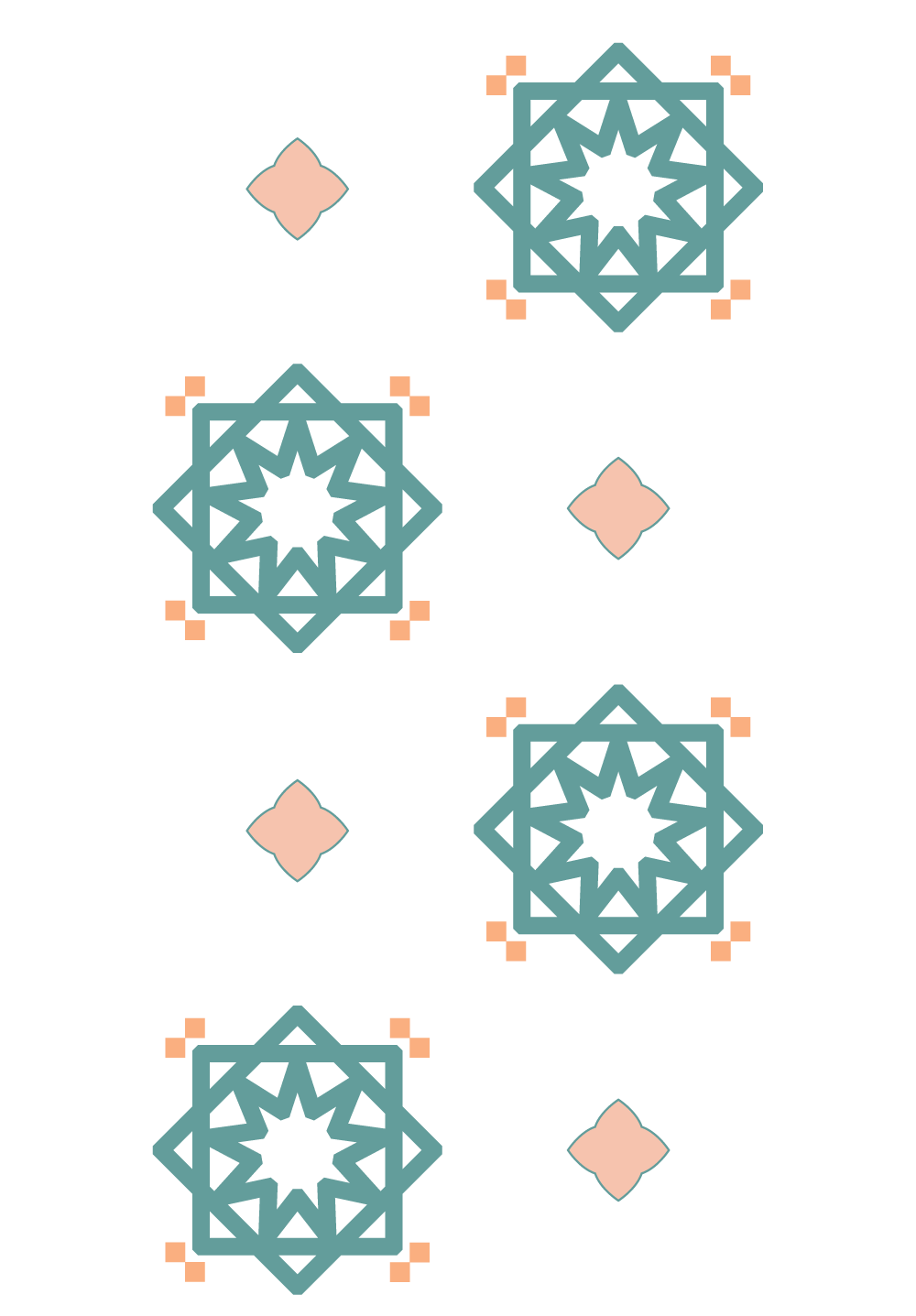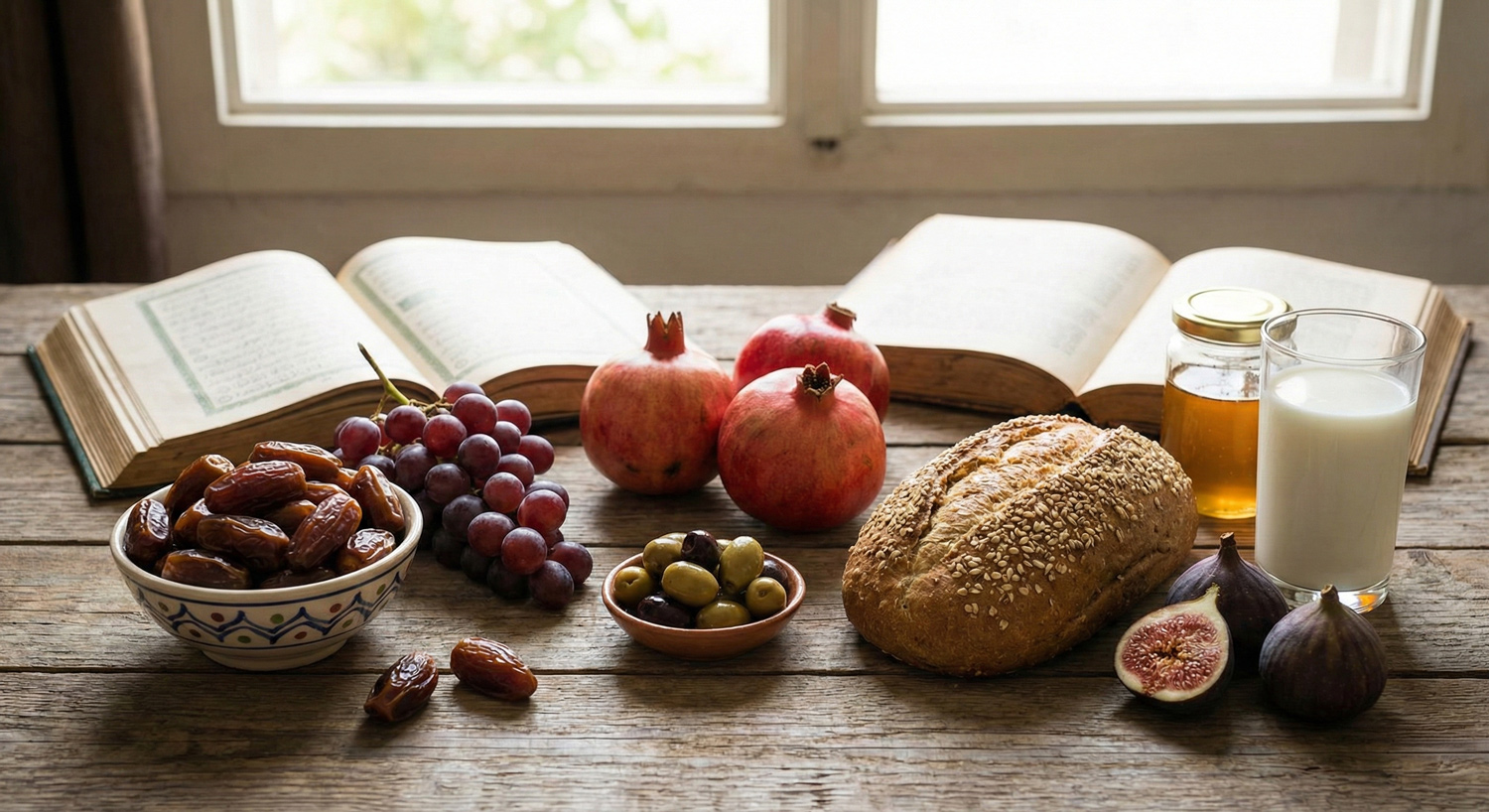


The foods mentioned in the Holy Quran contain great health benefits, as these foods are considered a gift from Allah to humanity. They carry nutritional and health benefits contributing to overall health and disease prevention.
The mention of pomegranate in the Quran is found in Surah Ar-Rahman, where Allah says: (In both will be fruit, palm trees, and pomegranates). Surah Ar-Rahman – 68. Pomegranate is very beneficial during Ramadan and at other times as well. It contains a huge amount of vitamins and helps in cases of extreme thirst, aiding in fasting in hot times and places. It also has protective and therapeutic properties.
Fig is a blessed fruit, as Allah swears by its great importance in Surah At-Tin (1-2). He says: (By the fig and the olive ˹of Jerusalem˺, and Mount Sinai) – At-Tin (1-2). Figs address many bodily problems, such as severe constipation, which may spread during Ramadan due to the accumulation of food.
The mention of olive is found in Surah An-Nur where Allah says: (lit from ˹the oil of˺ a blessed olive tree, ˹located˺ neither to the east nor the west,2 whose oil would almost glow, even without being touched by fire). Olive oil is scientifically known to aid digestion and the digestive system, benefit the liver, protect the body from arterial diseases and circulatory diseases, and act as a powerful body softener. Olive oil is one of the most useful oils used. It holds a special place in the Quran, as Allah swears by it in Surah At-Tin. (By the fig and the olive ˹of Jerusalem˺, and Mount Sinai) Allah then says immediately after (Indeed, We created humans in the best form) – At-Tin 4 indicating a relationship between figs and olives and human health.
Ginger is mentioned in Surah Al-Insan where Allah says: (And they will be given a drink ˹of pure wine˺ flavoured with ginger) Surah Al-Insan – 17. Ginger has many benefits as it is used as an effective treatment for indigestion, which may affect fasting Muslims during Ramadan. It is also used as an effective and strong pain reliever for headaches and stomach pains. It acts as a gas expeller, used to treat and expel phlegm, and as an effective and strong treatment for colds and sore throats when mixed with milk, boiled, and consumed hot.
Grapes are mentioned in the Quran 11 times. Allah says: (And from the fruits of palm trees and grapevines you derive intoxicants1 as well as wholesome provision. Surely in this is a sign for those who understand) (Surah An-Nahl: 67) Grapes are considered one of the most beneficial and best fruits. They contain glucose, which is rapidly absorbed in the intestines and stomach and immediately transferred to the blood. Grapes are effective in reducing sugar coma and help balance the nervous, sexual, and muscular systems.
Milk or dairy is an essential beverage in the month of Ramadan. Allah says: (And there is certainly a lesson for you in cattle: We give you to drink of what is in their bellies, from between digested food and blood: pure milk, pleasant to drink)-An-Nahl 66. Milk is highly beneficial for our bodies and is considered one of the blessings bestowed upon us by Allah. The Prophet Muhammad (peace be upon him) also advised us to consume milk over alcohol. Scientifically, yogurt or milk contains beneficial bacteria for the stomach and digestive system, is a good source of calcium and protein, helps maintain body moisture, and is recommended for suhoor. It is ideal for dieting and weight loss, provides energy throughout the day, increases the feeling of fullness, and helps combat fatigue, especially in the summer.
Vegetables and grains are essential foods for the human body during Ramadan and throughout the year. Grains, such as wheat, barley, oats, black seed, lentils, and others, are known for their various types and forms. Grains are the most important food for humans as they can be stored for long periods. Allah says: "And the grain-bearing palm trees" (Surah Ar-Rahman: 12). Vegetables, on the other hand, are rich in water, vitamins C and B, calcium, and caffeic acid, which help hydrate the body. They are also rich in fiber, which helps you feel full longer, reducing stress and lethargy experienced by fasters.
The benefits of dates are numerous. They are a remedy for anemia due to their high iron content, strengthen bones, teeth, and sexual health due to their phosphorus and calcium content, improve vision, maintain eye moisture, and have a calming effect on the nerves. Dates are equivalent to stomach acidity because they are rich in alkaline salts such as potassium and calcium. Allah says: "Have you not considered how Allah presents an example, [making] a good word like a good tree, whose root is firmly fixed and its branches [high] in the sky?" (Surah Ibrahim: 24). Dates are mentioned in the Quran 16 times, indicating their nutritional and medicinal value.
The word "water" is mentioned in the Quran more than 50 times. Allah says: "And Allah has sent down rain from the sky and given life thereby to the earth after its lifelessness. Indeed in that is a sign for a people who listen." (Surah An-Nahl: 65). Water is essential for fasting individuals, and doctors and nutritionists usually advise fasting individuals to drink plenty of water instead of other fluids.
Honey is a natural sweet liquid obtained from flowers and the abdomen of bees. The Quran mentions the benefits of honey, and scientists have supported this with scientific research. Allah says: "And your Lord inspired to the bee, 'Take for yourself among the mountains, houses, and among the trees and [in] that which they construct. Then eat from all the fruits and follow the ways of your Lord laid down [for you].' There emerges from their bellies a drink, varying in colors, in which there is healing for people. Indeed in that is a sign for a people who give thought." (Surah An-Nahl: 68-69). Honey contains a unique combination of grape sugar (glucose) and fruit sugar (fructose), collected by bees from flower nectar and fruits. Honey has different colors depending on the type of fruit the bee collects its nectar from.
Recent research has confirmed the great benefits of consuming fish. Eating fish once a week strengthens the brain, slows down the aging process, and reduces the risk of Alzheimer's disease. Allah says: "Lawful to you is game from the sea and its food as provision for you and the travelers, but forbidden to you is game from the land as long as you are in the state of ihram. And fear Allah to whom you will be gathered." (Surah Al-Ma'idah: 96). Fish remains one of the most important nutritional elements and is important for fasters, especially for those over the age of forty. Fish, in all its forms, does not contradict with fasting individuals who are trying to lose weight during Ramadan, nor does it conflict with fasting individuals suffering from chronic diseases.
Poultry also has numerous benefits, as it reduces the risk of heart disease, boosts the immune system, and reduces triglycerides in diabetic patients. Allah describes the food of the inhabitants of paradise, including "And the meat of fowls, any that they may desire." (Surah Al-Waqi'ah: 21).
Bananas are known for their health benefits, as they prevent arterial hardening, expel worms, smooth the skin, remove black spots and freckles, activate brain function due to their phosphorus content, which is essential for memory, and treat coughs. Allah mentions bananas in the Quran as "And [banana] trees layered [with fruit]." (Surah Al-Waqi'ah: 29), and "layered" refers to bananas.